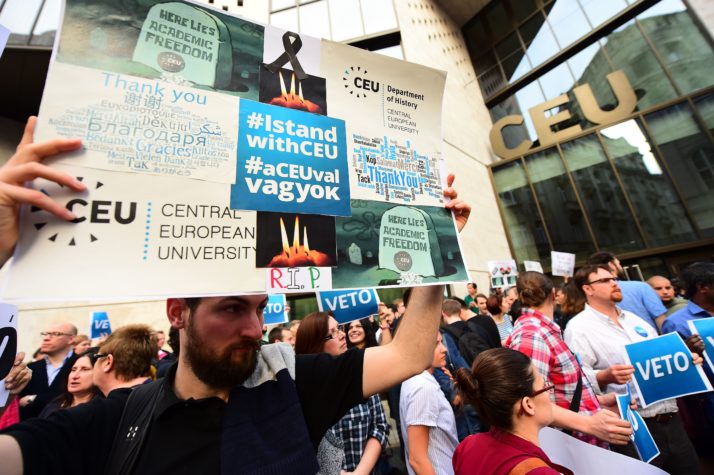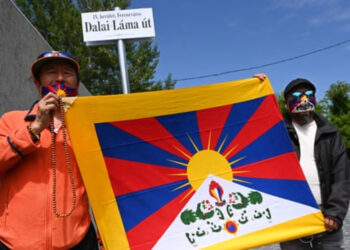The Hungarian government recently passed an amendment to the labor law that the nation ironically dubbed the “slave law,” and for good reasons. Employers are now allowed to ask for up to 400 hours of overtime and delay payments for up to three years.
The law, that effectively legalizes unpaid overtime, has brought thousands of Hungarians to the streets since mid-December, uniting a plethora of organizations including opposition parties, trade unions, civic activists, and the general public. The opposition finally learned that parliamentary politics alone is not enough to fight Hungary’s authoritarian turn.
While it is difficult to assess the social movements’ success in the short run, similar movements in other countries – such as the Gezi protest in Turkey and the Yellow Umbrella movement in Hong Kong – have waged residual effects on the transformation of politics. Therefore, we should not look at the Hungarian demonstrations in terms of whether they could enforce legislative change, but rather at the mobilization that it has triggered.
Looking at the demographic and social class composition of the demonstrating public, it seems that the protests have reached Hungarians alienated from politics. These publics can now be mobilized to vote in the upcoming elections.
Upcoming Local Elections
The next opportunity to see if the street protests can wage political change will be the local elections set for October.
All opposition parties, including the extreme right, have extended support to the demonstrations. Building electoral alliances towards national and local elections has long been debated in Hungary with the opposition succeeding in only a few occasions. The opposition has so far failed to establish alliances in country-wide elections.
Yet, the upcoming local elections provide an opportunity for the opposition to go beyond their entrenched differences and work together. While all-party alliances – particularly involving the extreme far-right Jobbik – could struggle to attract the liberals for national elections, they could succeed at the local level if parties can agree on a locally well-respected candidate. The protests certainly provide an opportunity for that, because unlike national elections, the local elections present more opportunities for independent candidates to win office.
Trade Unions
Hungary’s trade unions, the most organized and biggest interest groups in the country, have been going through an existential crisis faced with elitism, aging membership, and emigration. They are decentralized at confederation and federation level with some of them co-opted to politics through their alliances with political parties, including with the ruling Fidesz party. However, during the recent demonstrations, some of them have come to prominence with promises of change to achieve wider representation.
At the same time, some companies have stated that they will not follow the terms of the “slave law.” If unions and companies develop common positions regarding the new law, we can see more collaborative employment practices and hence invigorated unions. They can then attract new and particularly younger members.

Amidst the demonstrations, the opposition and unions could reach out to the latent activist base in Hungary that came out in previous occasions such as the demonstrations against the internet tax and the closure of Central European University. The implications of this will be important for the future course of Hungarian politics. Earlier, the protest movements could not maintain their platforms to offer strong political alternatives at elections.
Government Propaganda
In return, the government propaganda so far has portrayed the demonstrating public as representatives of the “migration lobby” that tries to prevent the Hungarian workers from earning more. Although this appears as a weak argument, as long as the government controls the local and national media, they will continue to maintain their voter base.
What will become crucial from now on for the new opposition is whether they can reach dormant alienated publics and mobilize them to turn out to vote during the local elections of October. This could certainly threaten Orban’s position.
The opposition should maintain their energy, not only on social media but also spatially beyond Budapest, never lose well-known Hungarian humor and political satire, and deliberate to converge on collaborative platforms bringing together a variety of opposition movements. Performance and aesthetics around protests are more important in the long run than the initial outburst of anger during social movements.
Disclaimer: The views and opinions expressed here are those of the author and do not necessarily reflect the editorial position of The Globe Post.






















